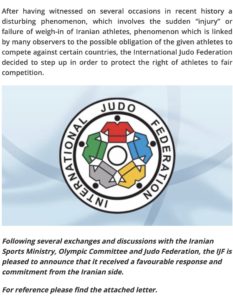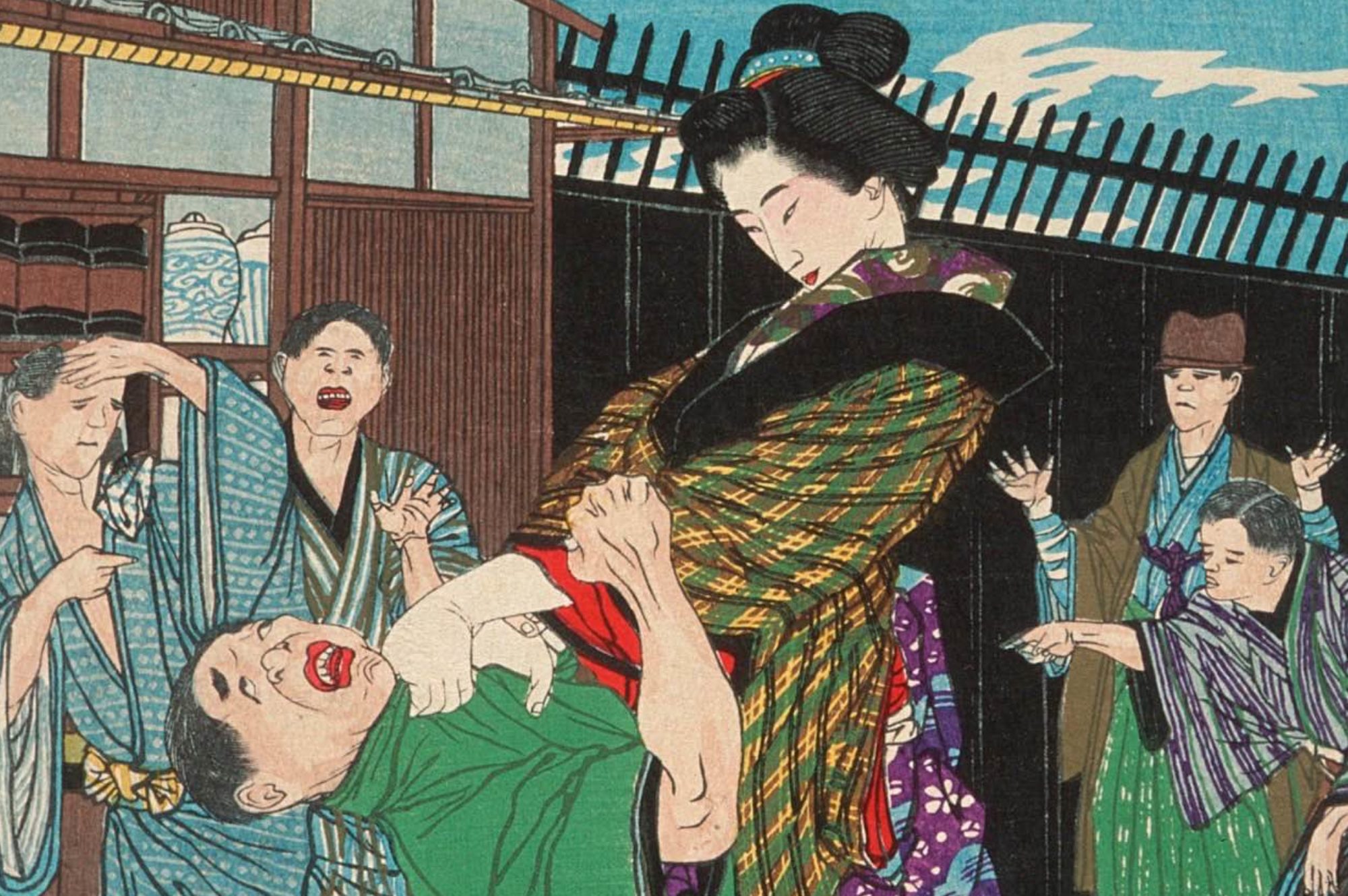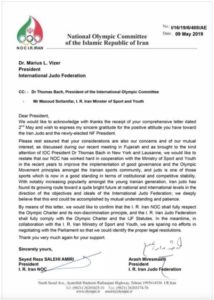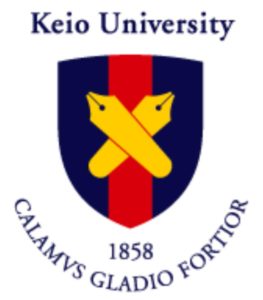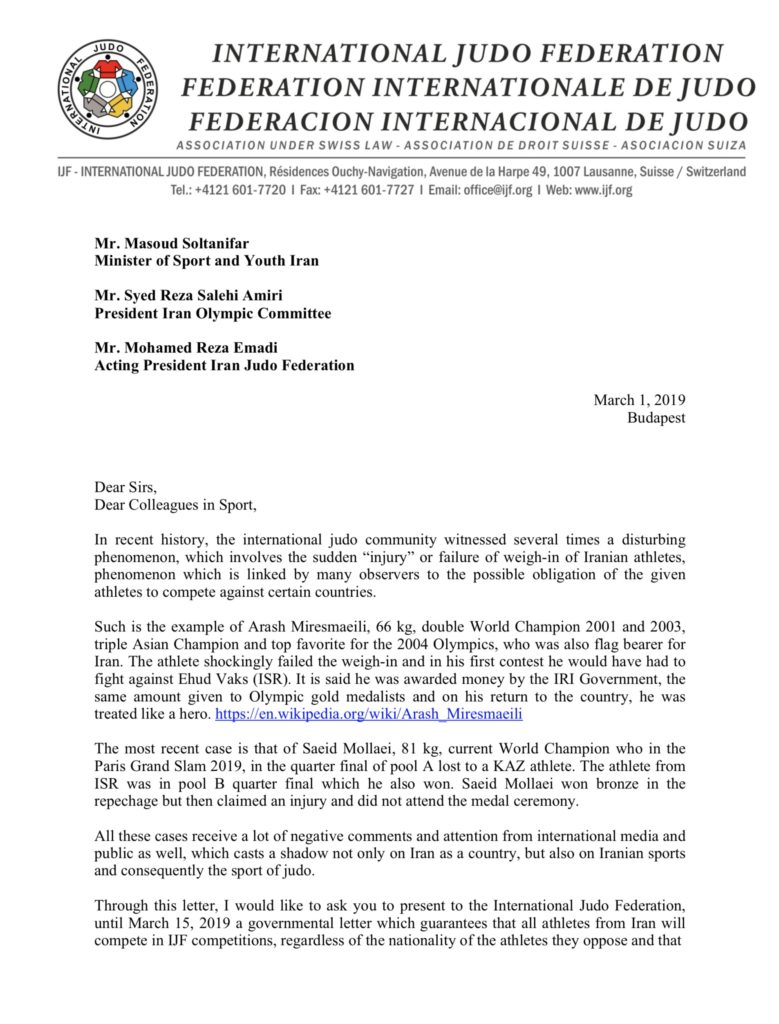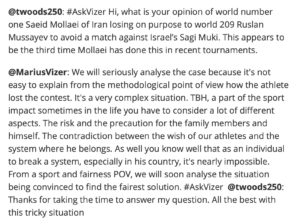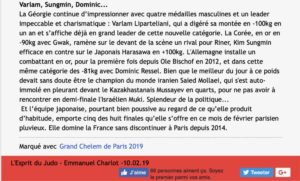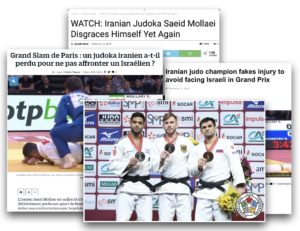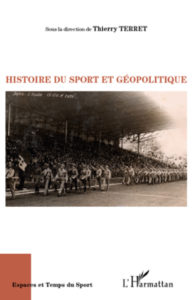” Sport has become the language of the world, a common denominator that breaks walls and barriers … it’s a great tool for progress and development”, UN Secretary-General Ban Ki-Moon said in a statement during a ceremony in Geneva, three months before the Rio de Janeiro Olympic Games. The celebration of the spirit of judo at the service of peace and development produces an identical discourse which affirms its supreme ambition in a maxim “mutual aid and mutual prosperity” and in a formula as evocative as it is enigmatic: “judo is more than a sport”.

A first question arises. Should we consider that there are invariant dispositions of human nature that lead to privileging the same values regardless of the difference of epochs and cultural, political and social environments? To adopt this point of view would be to deny the mosaic of currents and specificities constructed over time, to apprehend judo only in an allegedly original and pure form.
The history of judo and its values is made of continuities and breaks. I will only be interested here in the most recent, that of the beginning of the twenty-first century. This choice is justified by two main reasons. The first one is internal. It is linked to profound changes in the direction of world judo. The second one is external. It refers to the place that Judo occupies in its host societies, to the role it plays in practitioners’ daily lives.
The first element of rupture occurred during the 2004 Olympics in Athens. On the morning of the competition the twice Iranian world champion, Arash Miresmaeili, arrives at the weigh-in and the electronic scale displays 72.4 kg, a weight well beyond the limit of 66 kg in his category. Political diktat forbidding the athlete to face an Israeli opponent or health problem that resulted in accidental overweight? The international press seized the case. The whole world suddenly saw another facet of the Japanese method. Like other sports, judo has become an ideological vehicle.

Back in his country, Miresmaeili is treated as a hero and rewarded as an authentic Olympic champion. The cautious reactions or even the duplicity of some of the IFJ members at the time are denounced by the journalists. The suspension imposed on a South Korean coach for violently striking an eliminated athlete accentuates the distance to the education principles so frequently advocated. The time of values is suspended, put in parentheses, like a derisory bastion facing political and economic stakes.
The second element of rupture crops up three years later. It corresponds to the election of a new president of the International Judo Federation. The year 2007 is the beginning of a new era. It marks the alignment of judo on the model of the professional sport organized in circuit of international events putting judo performance in the spotlight.

On the one hand, this political choice results in a radical transformation that has immediate repercussions in all places, at all levels and for the actors of the system. On the other hand, the process accelerates the fragmentation of Kano’s method and its reification. Yesterday, being a judoka referred to a practice whose facets comprised the same entity. Today, judo is subdivided into separate activities aimed at health, personal defense, motor and civic education or sport. These practices appear as so many consumer products offered to practitioners who cohabit without ever meeting.
After having evoked this time of ruptures and the heavy trends of evolution, let us look for a moment at the nature and permanence of the values that fuel the official discourse. By inventing and by promoting judo, Jigoro Kano imposed on the world a new way of fighting. He set in space and time a particular vision of the Japanese intelligentsia of the late nineteenth century. His method was explicitly opposed to traditional styles of combat that did not opt for a reasoned control of physical violence. As soon as they were imported into Western countries, the codes and usages of Japanese art were merged into the sociability registers of those who shared the same vision of man and the world. Mostly from the upper classes, these pioneers were also passionate about the Orient. They became the first to transmit judo culture. By privileging the intelligence, the flexibility and the speed on the expression of the brutal force, the judo that they liked affirmed itself as the most civilized and the most intellectualized of the disciplines of combat. Norbert Elias’s analyzes shed a remarkable light on the role of sport in the social control of violence. The evolution of judo provides us with a very revealing example.

The values conveyed by Japanese art thus appear in a new light. Enriched by a project of social harmony, the principles of “better use of energy” and “mutual aid and mutual prosperity” are part of a positivist approach of modernity and social progress. In contrast to earlier periods, 21st century society is characterized by the rise of individualism which stands in the way of unreserved adherence to the values of judo and its ethics. The competition has plunged the Japanese method into the era of rationality. The sacred has slipped to the profane. The imaginary scenes of the virtues of the East has long been unveiled. The myth of the invincibility of Japanese art is strongly contested by other martial arts. While yesterday’s judo has made generations dream, the current collective representations are divided between the sporting exploits of the elite and the learning games of children in judogi. The heroic figures, the symbols, the founding texts that so seduced the first practitioners gave way to comic characters whose images are stick down paper diplomas.
Initiated in Provence, France, but largely taken over, even plagiarized, the moral code of the French judo as today replaced official morality. Adopted by many national and international bodies, the moral code of judo is nonetheless a reinvented tradition whose main historical basis is a nostalgic reaction to a context considered decadent. The initiative of a person whose idealism, as we know it, is part of a desire to respond to a sports movement that would have removed judo from its virtues and the philosophy of its origins. But, the examination of the retained values, of their number, of their order of presentation, of their definitions … can only lead to a reflection on the function which is implicitly assigned to them.

Like Kano who imposes the rules of a euphemistic confrontation, the moral code of French judo rests on the myth of an inherently educational practice associating the wisdom of the body with the wisdom of the mind. Like an advertising slogan, the moral code presents the current judo as a discipline of the body and emotions. It offers to the parents of younger and younger pupils the promise of a body training where self-assertion, respect for premises and people dominate. Thus, the stated values show the implicit will of civic education in a context of ultra-secure opposition at the same time as they legitimize the function and the power of the institutions that promote them.

The expression of these values reflects the Western perception of Kano’s method. For the Japanese, the respect of traditions and the right behavior is defined in specific terms, socially representative. “Manner, Independence, Nobility, and Dignity” make up the MIND program, an acronym that reveals both cultural roots and a desire for international openness.
Formerly incarnated by the master, the values of judo are today worn by the champion or the disciple. They are, as much as possible, relayed by the internal publications and the media. Widely reported, the testimonies of these public figures illustrate the way in which the practice was able to shape their temperament either in the control and the temperance or in the surpassing of oneself.
Theodore Roosevelt first, but closer to us Elliot Trudeau, William Hague or Vladimir Putin easily testify to the decisive influence of discipline in the construction of their personality. They are followed by other famous individuals such as the painter Yves Klein, the conductor Georges Prête, the Michelin-starred chef Thierry Marx or the astronaut Thomas Pesquet … The emblematic figure of these esteemed figures of the general public perpetuates the belief in a strength and a mental balance acquired through the practice of judo. Did not William Hague, the former head of the British Conservative Party, say: “What you do in the dojo is fully reflected in your daily life […] Judo gives you confidence. Full of confidence. You walk differently when you have practiced for many years”.

Judo also leads to heroic acts. Jeremy Logan Glick, passenger of Flight 93, September 11, 2001, is the ultimate example of the values instilled by the Kano method. In recognition of his bravery, high moral value and spirit of sacrifice, the American federation raised him to the rank of 10thdan posthumously. In the social field other successes arouse admiration. I will mention simply the Reaçao Institute of former Brazilian champion Flavio Canto who works for the social reintegration of the inhabitants of the favelas of Rio de Janeiro. His judo school conveys values of courage and work to all disadvantaged youth. At the same time, it has achieved a rarely equaled success, just like Rafaela Silva world champion and Olympic champion.

There is one point common to these stories of life, concrete examples of the merits of the Japanese method. This is the privileged relationship of the teacher and his pupil. Without it, nothing is possible.
To the nobility of the disciple, however, the deviances of the powerful are opposed. Although less publicized, breaches of the rule are not uncommon.

What about the sex discrimination of the first hours of judo? The medal awarded 50 years later to Rena “Rusty” Kanokogi is just one example. Deprived of her laurels in a team competition, the American, to whom we owe the inclusion of women’s judo in the program of the Olympic Games, was subjected to the humiliation of macho leaders who rushed the following year to change the title of the competition to reserve it for the male fighters.

What about the violence of some teachers, especially in Japan, a violence that since the 1980s has led to death or definitive disabilities resulting from head injuries in staggering proportions? From 1983 to 2010, 4 deaths and 10 serious accidents per year were noted in the indifference of the federal institution of the time. Although no fatalities have been reported among people under the age of 18 since 2015, several serious cases of brain injury continue to be reported each year. Despite its history, Japanese judo is not spared by the excesses of the race for high performance.

What about too many acts of sexual assault and pedophilia voluntarily ignored or mostly obscured especially when they relate to established characters or athletes on the charts? The example of Olympic champion Kayla Harrisson who suffered from the misconduct of her coach was widely publicized. This is the story of a survivor added to a long list of ignored cases.
What about those who take advantage of their dominant position to uncompromisingly engage in definitely illegal acts? Misappropriation of funds, ticket traffic during the Olympic Games, VAT swindle, vote corruption, network of smugglers for illegal immigrants … Judged too sensitive to be exposed in public places, these abuses were most often handled internally and have caused few official reactions. No country, no era is spared, but, unfortunately, too many unscrupulous or dishonest are the judoka who at the same time preach the doctrine of Kano. “Morality is good for the rich […] so I hate these good advices that we give to the wretched,” said in the philosopher Alain in Propos Impertinents. In a society where nothing escapes the global spread of information, ethical transgressions are resurfacing in the eyes of all and are permanently damaging the educational image and values of the Japanese art.

The Miresmaeli case initiated my remarks. Would the world of judo be free of political stakes? Is the attitude of some fighters from countries dominated by radical Islamism no longer a problem since the courageous and meritorious efforts of the IFJ president to reconcile peoples? Let’s examine the facts. When judo is not a political showcase, Iranian judoka have no problem fighting under the guidance of an Israeli referee. On the other hand, in other contexts, attitudes and slogans are different.

In 2016, at the Olympic Games, the Egyptian El Shehabi refused the hand of its winner, the Israeli champion Or Sasson under the watchful eye of journalists around the world. The following year at the Abu Dhabi tournament, the Moroccan Chakir after her defeat bowed and ran away without shaking the hand of the Israeli Rishony. The protection of values is a daily struggle difficult to carry out, always to start again. When at the Abu Dhabi Grand Slam, the political regime banned the Israeli flag, anthem and even crest, the president of the IJF reacted vigorously and imposes the rule of non-discrimination. The message is clear, strong and unambiguous. Thanks to its action, the 2018 edition of the tournament no longer includes any restrictions and provides a positive solution that delights the most pessimistic. Has everything returned to normal? The attitude of Ramadan Darwish makes it possible to doubt it. Third on the podium of the last Masters of Guangzhou, the Egyptian fighter willingly accepts the premium that Moshe Ponte, the president of the Israeli judo federation gives him. But when Ponte tried to congratulate him, the Egyptian fighter stubbornly refused his outstretched hand.
The first conclusion that can be drawn from this rapid examination is defined in terms of time differences, social classes, individual attitudes and motivations, cultural references and changing practices. History shows that judo has established its internal hierarchy on the scale of knowledge and mastery. The culture and ethics of the discipline refer to codes that contribute to the control of violence and social harmony in the West. Their echo resonates favorably in societies that value group and family, sharing and community life. The tutelary, often paternal, figure of the master and the values he transmits become moral dogma.
On the other hand, do not some federal institutions encourage a system that hurts values and traditions? How is it possible to contain a sport judo that over-prioritizes the fighters on the basis of performance and offers bonuses from the youngest age, that is to say, cadets or even youngsters in labeled tournaments? In spite of the cultural foundations of the discipline, do we not observe in certain training centers, during the initial bowing, the replacement of the traditional hierarchy of ranks by a hierarchy of sports titles?

It is not a question of thinking that current generations have renounced values. On the contrary. In a society where individualism is constantly denounced, where the family no longer constitutes a basic cell of reference, the relation to values is put into question. The modes of transmission and appropriation are thus fundamentally modified. From the beginning, the values of judo have nourished shared imaginations. Today, the ethics and the moral code imposed appear as arguments of authority at the service of the structures and the actors who establish them. In this, they arouse refusal or at best disinterest. For many teachers, not only is this discrepancy noticeable but it is painful. Technically, current judo is fractured between the practice of sports elites and that of young students. The knowledge dispensed refocuses on one side on effective gestures, on the other judo games supposed to teach. The pro-sports current crushes the philosophical heritage and the budgets of the culture. Many teachers remain on the margins of the sport. They suffer daily from the gap between conceptions. The historical and cultural heritage has gone out of fashion.
Social brewing due to massification, youthful membership, consumerist attitude and the domination of the sporting logic are the characteristic features that we find in all the countries of the world. To put it another way, Kano’s method has become a multifaceted practice with new practitioners animated with new motivations. The social role assigned to it or lent to it is part of a political and economic context adapted to the expectations induced by new consumer behavior.
In such a context, how is it possible to make the union of values in the face of the disunity of the discipline? Judo is neither virtuous nor educational in itself. It is all the more exposed to the excesses of sport as its originality and specificity in this matter are based on a neglected cultural and historical background and a weakened collective imagination. The values of judo exist only if they are taught. There are values only in the teaching act and in the human relationship between the one who transmits and the one who receives.
The changes I have emphasized involve rethinking transmission to teachers and their students in a way that is no longer descending but ascending. Nowadays, adherence to the philosophy of Kano’s method requires individual construction and appropriation. The future of judo and the place that values will hold is not what will happen but what we will do with them. The preservation of the cultural and historical heritage requires an active approach. It remains a path on the sole condition that the balance of traditions and modernity is maintained, but also the respect of free will to allow each individual to adhere without constraint.
Michel Brousse
